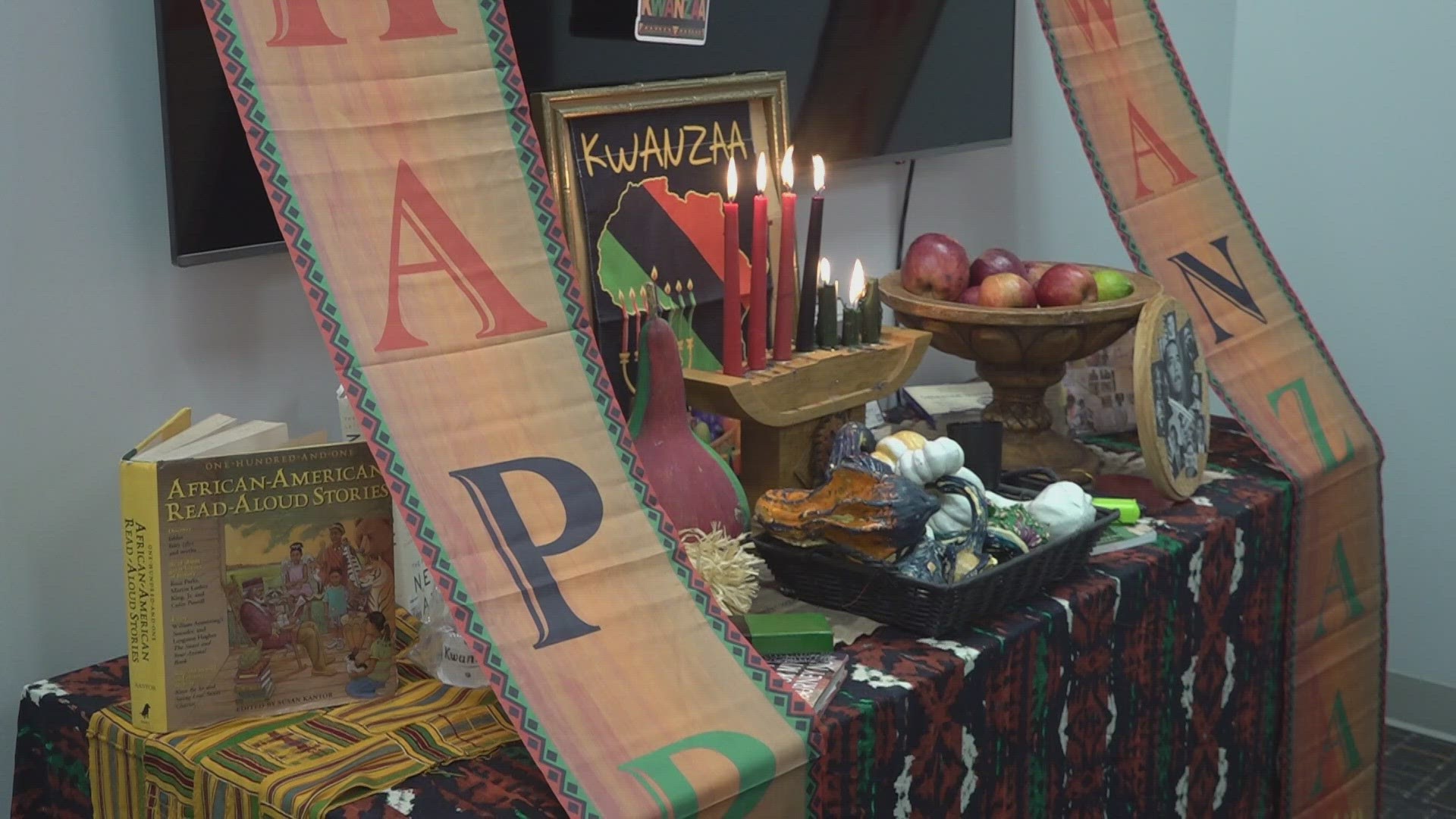KNOXVILLE, Tenn. — While many view December as the holiday season, the celebration does not end with Christmas. Dec. 26 marks the beginning of Kwanzaa, and it won’t just be celebrated in Knoxville, but all across the world.
This week-long holiday features the seven-candle kinara, decorations, food, drumming and dancing.
The seven principles that are observed daily during this celebration are principles everyone is invited to take part in.
What is Kwanzaa?
Kwanzaa is a week-long celebration and reflection of African Diasporic unity and Black Culture.
The celebration of Kwanzaa in the United States began in 1966 by Professor and Chairman of Black Studies at California State University, Dr. Maulana Karenga.
Dr. Karenga was looking to find a way to bring communities together and give black people the opportunity to celebrate their history and traditions, especially after the race-driven Watts Riots that took place in Los Angeles but was felt throughout the nation.
Dr. Karenga understood the power of community and local advocacy.
The word “Kwanzaa” is derived from the Swahili “Matunda ya Kwanza” meaning “first fruits” and is meant to be a time of reflection, fasting, feasting and self-examination.
How is Kwanzaa celebrated?
Because Kwanzaa is not tied to any particular religion, all are invited to celebrate.
Every day is dedicated to a specific principle to be observed and emulated, with specified candles and emblems as well. After fasting throughout the day, families gather at dinner for a candle ceremony. A child of the family lights one of the seven candles held on a kinara (Swahili for candle holder), that principle is then discussed and meditated on.
There are three colors associated with the candles. A singular black candle represents the Black or African American community as a whole and incorporates unity of an entire people, community, culture and race. Three red candles represent struggles, bloodshed and trials. The three green candles represent the future, hope and the land we live on.
On each day, a candle is lit and discussed, and on the seventh day, Jan. 1, a Karamu (African Feast) is held.
In Knoxville, the community holds a week full of events that people can take part in. You can find a calendar of events from the "Community Coming Together City-Wide Kwanzaa Celebration" Facebook page below:
What are the Seven Principles?
Unity: “Umoja” ( oo-MO-jah) meaning “unity”
People are asked to meditate on and to strive for and maintain unity in the family, community, nation and race.
Self-Determination: Kujichagulia (koo–gee–cha–goo–LEE–yah)
People are asked to meditate on the ability to define ourselves, name ourselves, create ourselves and speak for ourselves.
Collective Work and Responsibility: Ujima (oo–GEE–mah)
People are asked to meditate on the ability to create and maintain our community together. To see the problems of your neighbors as the problems of us all and to solve them together.
Cooperative Economics: Ujamaa (oo–JAH–mah)
People are asked to meditate on the ability to build and maintain shops, stores and businesses as well as to profit from them together as a community.
Purpose: Nia (nee–YAH)
People are asked to meditate on making our collective vocation focused on developing and maintaining the community in order to restore people to their traditional greatness and to provide opportunities for all.
Creativity: Kuumba (koo–OOM–bah)
People are asked to meditate on ways to do as much as we can to leave our community as beautiful and beneficial as possible and to improve it where we can.
Faith: Imani (ee–MAH–nee)
People are asked to meditate on how we can believe with all our hearts in our people and the righteousness and victory of our struggles.

